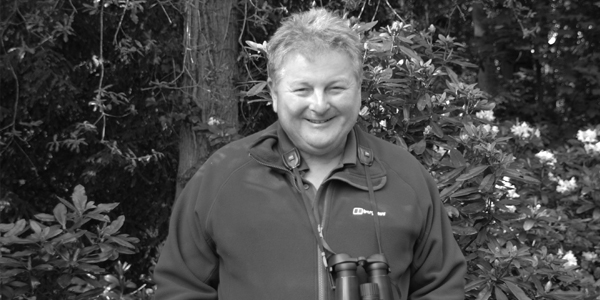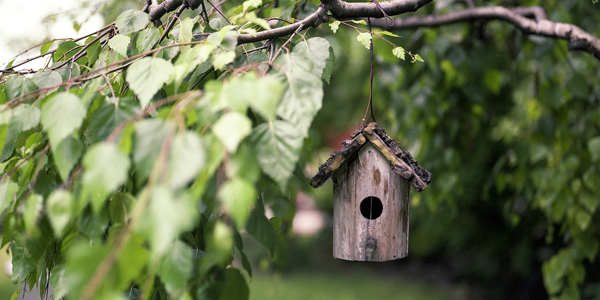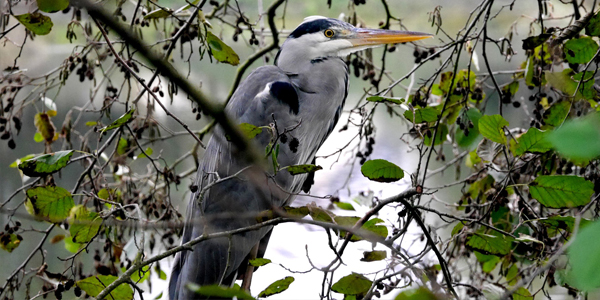We have an abundance of birds here on the Bostock Estate from woodland and song birds, game birds and wild fowl, to our visiting grey heron who keeps a watchful eye over the lakes.

Our resident birder, Paul Freeman, has written an article which tells more about the antics of our feathered friends, and he is always delighted to take an early morning walk around the Estate with anyone who would like to discover more about our fellow residents.

Feeding Our Birds
The following is RSPB guidance on how to take care of the birds in our gardens all year round.
In winter, supplementary food is often the only option for birds as natural food sources like berries get buried under snow and ice and insects are few and far between. In summer birds will still be grateful for extra treats, as many are busy raising their young. The RSPB recommends little and often, and says that birds probably won’t eat quite as much as during the colder months.
Peanuts
Peanuts are suitable for birds, but should be fed with caution at some times of year. They are often difficult for young birds to digest because of the size, so the RSPB suggests alternative food like sunflower hearts and live food during the breeding season, or crushing them into smaller pieces. Peanuts can be high in a natural toxin, which can kill birds, so buy from a reputable dealer to guarantee freedom from aflatoxin. Peanuts are rich in fat and are popular with tits, greenfinches, house sparrows, nuthatches, great spotted woodpeckers and siskins. Salt is toxic to birds so salted peanuts are completely unsuitable.
Bread and Milk
Bread and milk should not be fed to birds and hedgehogs. Many animals are intolerant of the lactose in milk which can lead to diarrhoea, dehydration and death. It is also bad for hedgehog’s teeth. Milk is iron deficient so in excess can cause dietary imbalance. In drought conditions animals may drink milk rather than water, to their detriment. It is bad for garden hygiene and the spread of disease as it will readily curdle if left for any length of time. While bread won’t do birds any harm, it doesn’t offer any nutritional value either and acts as a ‘filler.’ Crumbled up cake or plain biscuits would be more suitable and porridge oats are popular with many birds too.
Fruit
Fruit is an excellent supplementary food for many birds, particularly slightly soft apples and pears and soaked fruits. Rotten fruit isn’t as suitable – birds don’t like food that’s past its best anymore than we do!
Live Mealworms
Live mealworms are readily available and are a great source of food for birds like robins, blackbirds and tits. Many people believe that they need to be chopped up and shouldn’t be fed live, but this is incorrect. Val Osborne, Head of Wildlife Enquiries at the RSPB says:
“In the summer months we get so many calls from people wanting to know what the ‘rules’ are on bird feeding. In short, it’s no different to any other time of year and birds will appreciate our help. They probably won’t take the huge amounts of extra food that they do in winter, as there is a lot more natural food around. But instead, during the breeding season especially, they need to find even more food for their chicks so just bear that in mind and break things into smaller pieces, or use suitable feeders where necessary.”
Discover more on the RSPB website here


